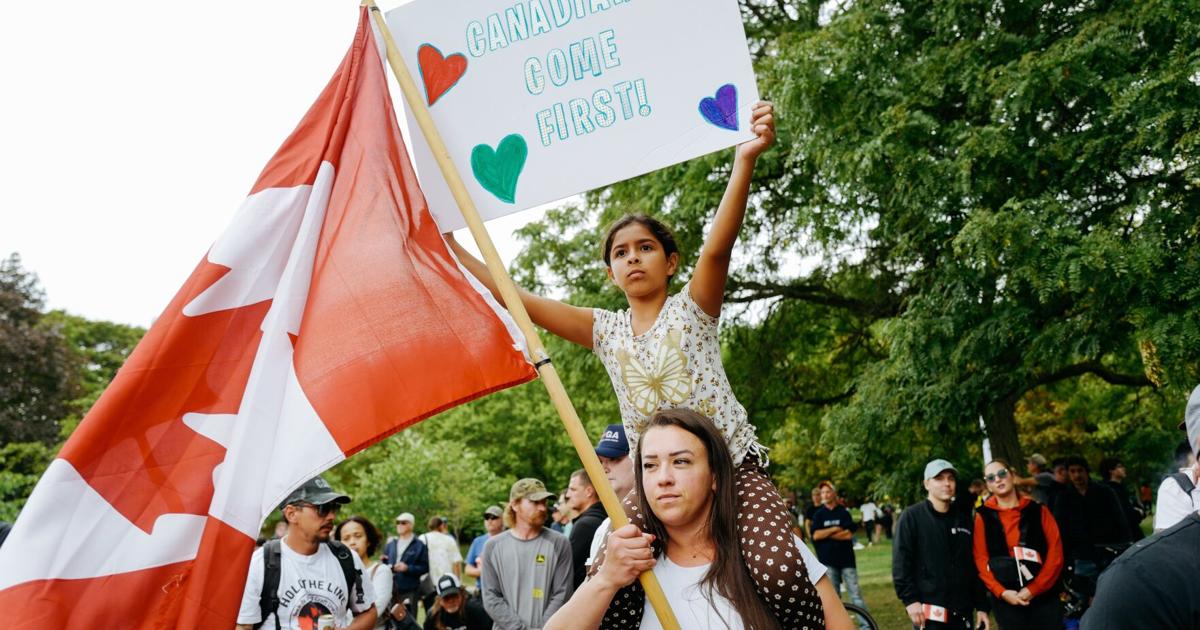By Yvonne Su
Copyright thestar

There was a “Canada First Rally” recently in Toronto, to “Stop mass immigration. Start mass deportations” according to the social media poster for the event. But here’s the catch: our immigration system already runs on a Canada First principle. Who is admitted, who is rejected, who is left in limbo is always structured around what Canada needs, not what immigrants want.
So maybe it’s time we call it what it is: an “Immigrants Second” movement.
Canada has always chosen newcomers primarily by how well they serve the economy: whether they can plug labour shortages, pay overpriced international tuition fees, or fill regional gaps. It’s not about giving people from other countries safety or a fresh start — those things are secondary, sometimes tertiary to the codified “Canada First” ideal. Refugees get excluded by extended bureaucratic delays. Reuniting parents and grandparents get stuck in backlogs. International students are demonized as fraudulent asylum seekers.
And now, as the Star reports, the federal government wants even broader powers to cancel or suspend immigration applications if it decides it’s in the “public interest.” In practice, that means the governments’ interests, however the minister of the day defines it. With Bill C-2, the so-called Strong Borders Act, immigrants aren’t just second — they can be cut out of line completely.
Bill C-2 simply legislates something we already know — that immigrants have been, are and will always be second.
Second to economic needs.
Second to security concerns.
Second to angry voting citizens.
The proposed law crystallizes this reality. Refugee claimants who’ve been in Canada for more than a year may lose the right to a hearing. International students who face bureaucratic delays could see their applications suspended. Temporary workers could suddenly lose status if their permits are revoked. And because the bill even applies retroactively to people who arrived after June 2020, those who thought they were playing by the rules could find the rules rewritten beneath them.
Here’s the awkward thing about an “Immigrants Second” politics when Canada is in a nation building moment: Canada can’t build without immigrants. Ottawa’s new Major Projects Office just flagged a slate of nation-building infrastructure projects that will require tens of thousands of construction and industrial trades jobs across the next decade. Those sectors are already short of people.
Even now, nearly one-in-four construction workers in Canada is an immigrant, and industry groups warn that without faster recruitment and training, projects will slip. So, without enough Canadians who want to do the work, inevitably some of these jobs, especially in rural or hard to access parts of Canada, will be “Immigrants Only” jobs.
It might sound ridiculous on first look, but we’ve been here before. When Canada became a nation with the construction of the Canadian Pacific Railway, it turned to imported labour because there was a chronic labour shortage, and Canadians didn’t want to do the more dangerous jobs.
Chinese migrants formed three-quarters of the total railway workforce in British Colombia, and it was Chinese men who were sent to do the perilous work of blasting through mountains, often hanging from cliffs with dynamite. Historians estimate 600 to 2,200 Chinese workers died — their families uncompensated and unnamed — building Canada’s nation-building railway. This was the cost of nation-building on the cheap and it looks like it’s a bad habit Canada can’t seem to shake.
Bill C-2 doubles the contradiction. On paper, we need immigrants to build housing, ports and our energy sector. In practice, the bill lets the government cancel or suspend applications in a catch-all “public interest” escape clause. These policies heighten precarity for the very workers Canada will quietly reply on when domestic supply falls short. That is “Canada First, Immigrants Second” made law.
If we’re serious about nation-building, then build the workforce fairly: clear, narrow limits on “public interest” powers; due process guarantees; and fast, humane pathways for the immigrants who will help us pour the concrete, run the cables, weld the steel and build the turbines. Anything less is a replay of our past — expecting immigrants to do the dangerous work while leaving them last in line for dignity and rights.



